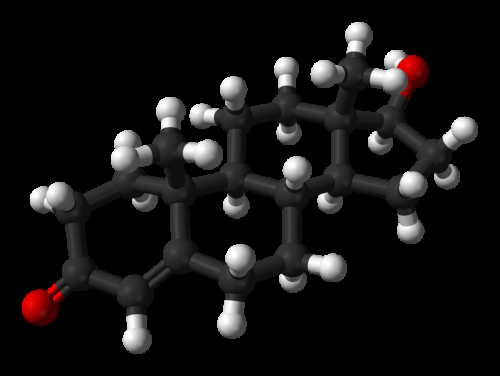Hormone-influenced social strategies shape human social hierarchy, study shows

In a game of chicken, the most aggressive players are fueled by testosterone and are more willing to harm others; and while it may be easy to demonize such hawkish behaviors, psychology researchers from The University of Texas at Austin say there is sound evolutionary reason for their existence.
High testosterone levels are associated with competitive, status-seeking social behaviors, whereas low testosterone is thought to encourage more cooperative behaviors. These differing hormone profiles have shaped social hierarchies throughout the course of human evolution, according to researchers.
"Evolutionary analysis suggests that natural selection favors a mixed population," said UT Austin psychology professor Robert Josephs. "Evidence of different social tactics are present across species, from beetles and spiders to salmon and orangutans."
In a study published in Hormones and Behavior, researchers modeled status interactions in a monetary hawk-dove game. Like the chicken game in which two cars drive toward each other and the first to swerve to avoid the crash is dubbed the "chicken," the hawk-dove game allows players to adopt dominant (hawk) or subordinate (dove) strategies, for a monetary pay-off. If one player chooses hawk while the other chooses dove, the hawk receives a 4:1 larger payoff. If both players choose dove, both benefit equally, but moderately 2:2; if both players choose hawk, neither receives a payoff.
"Groups with more than one high-testosterone individual may experience high levels of status conflict that can undermine individual and collective outcomes, whereas groups that are mixed are more likely to form social hierarchies that improve coordination and foster adaptive collective performance," said the study's lead author and UT Austin psychology Ph.D. alumnus Pranjal Mehta, who is now an assistant professor of psychology at the University of Oregon.
Ninety-eight participants were divided into same sex partners. Saliva samples were taken before and throughout the game to measure testosterone levels as well as the stress hormone cortisol. Cortisol, in high levels, has been linked to submissive, avoidant behaviors, whereas in low levels, it has been linked to dominant and aggressive behaviors.
In 10 rounds of play, participants, as a whole, opted for hawk strategies half of the time, a number that did not differ between males and females that further supports the claim that an evenly mixed population of hawks and doves has been favored by evolution. However, participants with higher levels of testosterone chose hawk decisions much more often than those with low-levels. Further, participants whose cortisol increased during the game tended to opt for dove strategies, whereas those whose cortisol decreased made more hawk decisions.
"High-testosterone individuals appear to be more willing to harm others to achieve a desired outcome whereas low-testosterone individuals may experience greater empathy and are more interested in cooperating with others," Mehta said.
Unexpectedly, participants' self-reported satisfaction was positively associated with testosterone levels, but only among participants low in cortisol. This joint influence of testosterone and cortisol is consistent with a burgeoning literature on dual-hormone effects, in which the influence of testosterone is facilitated by low cortisol levels, but blocked by high levels of cortisol.
"Social motives reflected in dominance, deference and the pursuit of status may explain the effect of testosterone on choices in a game of chicken, but we didn't examine these social motives directly," Mehta said. "Future research should measure such motives to understand the psychological mechanisms underlying the hormonal effects we observed."
















